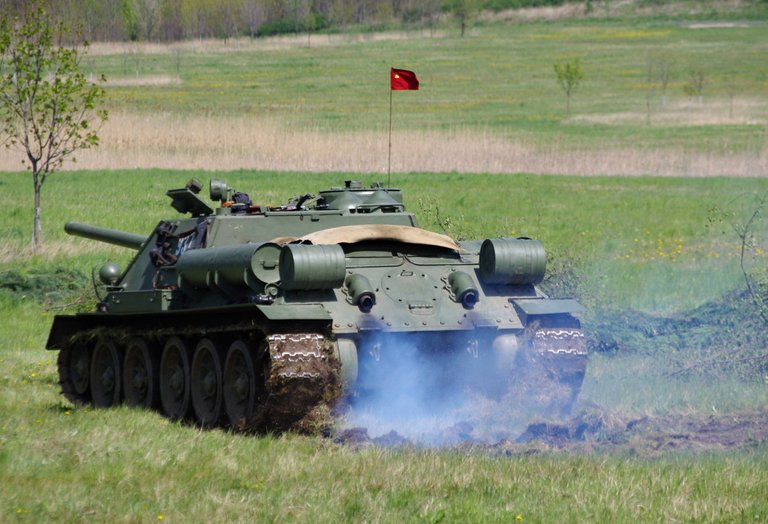NATO to go for greener military capabilities
NATO Secretary General Jens Stoltenberg said during a video conference during a session at the COP27 climate change summit that, "In the future, the most efficient military capabilities will be the greenest and most environmentally friendly ones."

Source: pexels.com.
During his speech, the NATO Secretary emphasized three areas of concern for the Alliance. Firstly, he made clear the great impact that climate has on security, as we are undoubtedly heading towards a future where there will be great rivalry for access to scarce resources.
It is worth remembering how in the recent war in Ukraine, Russia's response to the economic sanctions imposed by the European Union for the invasion was to cut off gas supplies through pipelines. This shows us how gas and oil, the main sources of energy in the world, can be used as a weapon, making it imperative to transition to renewable energy sources to avoid dependence on oil and gas of a specific nation.
On the other hand, he also called attention to the increasingly severe conditions in which military troops will have to operate, such as extreme temperatures, as they had to face in missions like those in Iraq, or how the melting of the Arctic ice and the consequent rise in sea level may affect allied military bases.
And finally he pointed out that the Alliance's military forces have to unite in the fight to reduce greenhouse gas emissions, as traditional military vehicles such as tanks, battleships and aircraft are not environmentally friendly, they emit large amounts of CO2, so he urged allied forces to find ways to reduce emissions from conventional military equipment.

Source: pxhere.com.
An example of this is being provided by the U.S. military; in February of this year, the U.S. Army News Service released its first climate strategy, which focuses on a commitment to provide 100% of its military bases' electricity from carbon-free sources by 2030, building a fleet of hybrid tactical vehicles by 2035, and training soldiers to conduct operations under the difficult conditions imposed by the current climate crisis.
In this way, the army not only seeks to be more environmentally friendly, but in fact seeks to adapt to the extreme conditions that climate change can cause, since its level of response to a situation depends on the minimum possible cut in energy supply. In this way it gains a strategic advantage, especially if it is better adapted than its rivals.
And although it is important that armies, as well as any other type of organization, move towards a more ecological and sustainable model that helps to mitigate climate change, we must also remind NATO members and any other army in the world, that war and exercises in preparation for war, is the most destructive forms of environment, so we must find ways to avoid at all costs armed conflicts, which in addition to a large balance of human casualties leave in its wake the devastation of the environment.
Well friends, I hope you liked the information, and let's hope that the world finds better ways to ensure peace than making their armies more environmentally friendly.
Environmentally friendly war. Why put so much effort into that, and not just work to a world without the need for war? Seems an oxymoronic statement to make.
No doubt my friend, it is a total contradiction to talk about making armies more efficient and environmentally friendly when wars cause profound damage to the environment.